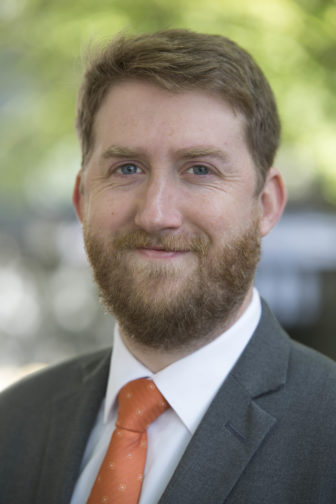 The American dream depends on the idea that we all start with a chance to succeed, but the reality is that too many young people are born into situations without ever having a fair first chance.
The American dream depends on the idea that we all start with a chance to succeed, but the reality is that too many young people are born into situations without ever having a fair first chance.
Coincidentally, the idea of “another chance” has been front and center in this presidential election. Hillary Clinton's emails have been investigated by the FBI, and Donald Trump has faced allegations of sexual misconduct. But voters seem to believe that their candidate deserves more than one chance.
I’m asking you to use your vote to prioritize multiple chances for all our youth. Young people need multiple chances in order to develop into healthy and successful adults. When they do, we all win.
Valuing this philosophy might do more than get one’s preferred candidate elected. In the context of criminal justice reform, it can benefit taxpayers, increase public safety and reinforce the idea that the United States is a place where all people can succeed. Clinton and Trump have both received numerous chances, and both have spoken to the need for criminal justice reform. The two concepts interact in a unique way that’s worth your attention when you vote.
Recent brain development research demonstrates that young adults are developmentally different than adults ages 25 and older. Young adults are more impulsive and more likely to make poor decisions. This has notable consequences for our country’s criminal justice system since disengagement from school, exposure to violence, poverty, race and being young parents can all correlate with a young person’s likelihood of involvement with the criminal justice system.
“In many ways, young people in trouble with the law represent both a challenge and an opportunity,” said Vincent Schiraldi, senior research fellow at the Harvard Kennedy School Program in Criminal Justice. “Because they are developmentally more malleable, if we provide them with appropriate services and supports, we have a real chance to help them turn their lives around rather than spending it in and out of prison.”
There are so many rewards to Americans when we allow our young people to succeed. At UTEC, Inc. in Lowell, Massachusetts, we have built an entire program model on the foundation of multiple chances for young people with past serious criminal and/or gang involvement. UTEC never gives up on a young person, and our programs allow them to fail (safely) and re-enroll until they are ready to make real changes. UTEC also operates social enterprises to provide real-world jobs that never fire young people. The impact of this multichance approach is stunning.
In Massachusetts, 52 percent of all incarcerated young adults are rearraigned within 12 months of release. In comparison, UTEC youth members only recidivate at 11 percent. This considerable drop in new offenses reflects increased public safety and a public benefit in cost savings associated with law enforcement and incarceration. Significantly, UTEC’s cost per youth is only $22,000 (for enrollment programming of 35 hours/week, including paid work experience) as compared to the statewide average cost of incarceration at $53,000. Less recidivism means less taxpayer money spent on incarceration and reinvested into our communities. Both Clinton and Trump have spoken about ways government spending could be used more effectively. Here’s their chance.
Each candidate has stated their prioritization of criminal justice reform. Each candidate has spoken to their hope that America can improve its promise for working-class families. Similarly, each candidate has experienced the benefit of multiple chances. If Hillary Clinton and Donald Trump can benefit from multiple chances in pursuit of the presidency, then certainly our nation’s young people deserve multiple chances in pursuit of social and economic success.
As a voter, you ultimately decide which candidate is more likely to apply a multichance approach to criminal justice reform and reinvestment opportunities. When you go vote today, please remember our country’s young people and vote for multiple chances for our citizens who need them most. It’ll be worth it for everyone.
Geoff Foster is director of organizing and policymaking at UTEC, Inc. in Lowell, Massachusetts, a nationally recognized model agency whose mission is to ignite and nurture the ambition of proven-risk youth to trade violence and poverty for social and economic success.